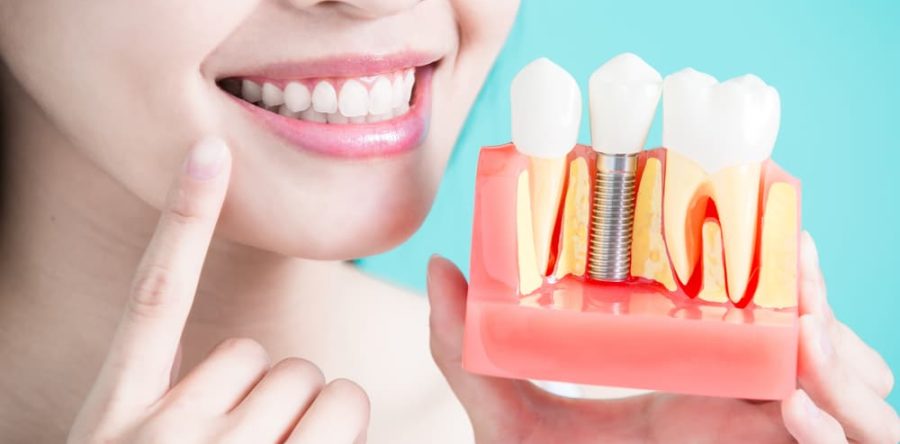Even with modern dental care, tooth loss to injury or disease still occurs. Fortunately, modern dental care also means new solutions for missing teeth. Dental implants consist of artificial teeth set on titanium roots, which are affixed into the bone and gum teeth for anchoring. A relatively new development compared to dentures and bridges, implants can be a viable alternative to both, providing much-needed oral health and confidence boosts to people suffering from tooth loss.

A Natural Replacement
Implants work well for tooth restorations that have a familiar look, feel, and function. Through a process called osseointegration, the titanium implant bonds closely with the surrounding bone tissue as it heals, allowing for a foundation as strong as natural tooth roots. As a result, dental implants look more natural and don’t get in the way of eating, talking, or other parts of everyday life. Dentures need adhesive and can slip loose, and bridges, because they’re anchored to adjacent teeth, have a noticeably different fit in your mouth. The appearance of bridges is less distinctive when replacing teeth, but implants look much better in the front of your mouth.
Fighting Bone Loss
When you lose a tooth, your body notices. Without a tooth to hold in place, the jawbone surrounding the extraction site begins to recede as osteoclasts break down and repurpose the hard tissue. This causes a problem for patients who receive dentures or bridges—since they’re not rooted in the jawbone, bone loss can occur, causing misalignment in remaining teeth and weakening dentures’ proper fit. Implants counteract this by providing the same stimuli as natural teeth, indicating that the bone is still needed and kept from being resorbed.
Easier Maintenance
Dentures are easy to clean because they’re removable, but bridges present some issues. The bonding to surrounding teeth can make dental hygiene a little difficult, especially flossing. On top of that, installing bridges requires that the anchor teeth get filed and re-contoured so that the bridge can be fixed. This loss of enamel has an impact on long-term oral health, creating vulnerability to decay. Implants avoid both of these issues—they don’t change the process of brushing and flossing, and they don’t require alteration to other teeth. On top of that, dental implants are built to last, while bridges could need replacing in about ten years.
Losing a tooth doesn’t have to be a disaster. With a dental implant, you can have a wonderful—and healthy—smile to feel good about.




